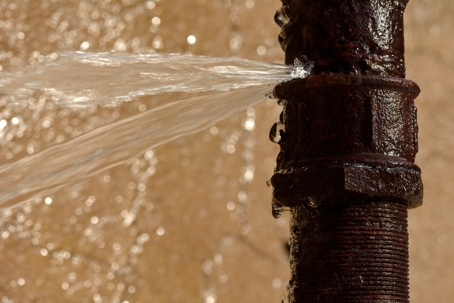Burst pipes can cause serious headaches for homeowners. A pipe bursts can flood your property, damage your belongings, and leave you with a significant cleanup bill. While insurance can help cover the costs, filing a property damage claim isn’t always straightforward.
If you’re dealing with a burst pipe and property damage, understanding how to file a claim and what to expect can make the process less stressful. Here’s a guide to help you protect your home and get the compensation you need.
1. What to Do Immediately After a Pipe Bursts
When water is rushing into your home, it’s crucial to act quickly to prevent further damage. Before you even think about the insurance claim, take these steps to protect your property:
- Turn Off the Water Supply: Locate your main water shut-off valve and stop the flow immediately.
- Document the Damage: Take photos and videos of the affected areas, including water damage to floors, walls, furniture, and personal items.
- Prevent Additional Damage: Move valuable items to a safe location and try to dry out affected areas as much as possible to avoid mold. Insurance policies often require you to take reasonable steps to minimize the loss.
- Call a Plumber: You’ll need to repair the pipe quickly to restore water and prevent further damage. Keep the receipt for this repair as it may be reimbursable.
Pro Tip: Don’t throw away damaged items just yet. Your insurance adjuster may need to see them as part of the claims process.
2. Understanding Your Insurance Coverage
Not all water damage is the same when it comes to insurance. Coverage for burst pipes typically depends on your homeowners’ policy, and policies can vary widely.
- Covered Events: Most standard homeowners’ insurance policies cover sudden and accidental water damage, like a burst pipe.
- Exclusions: Damage caused by neglect, such as pipes freezing because the heat wasn’t properly maintained, might not be covered.
- Additional Coverage: Some policies include optional endorsements for water damage or mold remediation, which can be helpful if the damage is extensive.
Tip: Read your policy carefully to understand what is and isn’t included, or consult your insurance agent for clarity.
Example: If a pipe bursts while you’re away on vacation and you took steps to keep the heat running, you’re likely covered. But your claim could be denied if the damage occurred because the home wasn’t properly winterized.
3. Filing a Property Damage Claim
Once you’ve stopped the water and documented the damage, it’s time to contact your insurance company. Here's how to start the claim process:
- Report the Damage: Call your insurance company as soon as possible to report the burst pipe. Be prepared to provide details like when the damage occurred and the extent of the losses.
- Provide Documentation: Submit photos, videos, plumber’s reports, and receipts for repairs, cleanup, or temporary housing if you had to relocate.
- Schedule the Adjuster’s Visit: The insurance company will send an adjuster to assess the damage and determine the payout for your claim. Keep a detailed inventory of damaged items to share with them.
Pro Tip: Be honest and transparent during the claims process. If you exaggerate the damage or try to claim pre-existing issues, it could backfire.
4. Common Challenges in Burst Pipe Claims
Filing a claim for water damage isn’t always smooth sailing. Here are some common challenges you might face—and how to overcome them:
1. Claim Denial Due to Neglect
If the insurer decides the burst pipe resulted from neglect, like a lack of heating during freezing temperatures, they may deny your claim.
What You Can Do: Provide evidence that you took reasonable steps to maintain your home, such as heating bills, thermostat settings, and maintenance records.
2. Lowball Settlements
Insurance companies may offer a settlement that doesn’t fully cover your repair costs.
What You Can Do: Get independent estimates for repairs and compare them to the adjuster’s assessment. If needed, negotiate for a higher payout or seek legal advice.
3. Delays
Some claims take months to process, leaving you out-of-pocket for repairs in the meantime.
What You Can Do: Stay in regular contact with your adjuster and respond promptly to requests for more information. Persistence can help keep things moving.
4. Disputes Over Coverage
Not all damage is covered. For example, if mold develops from a delay in cleanup, the insurer may claim it’s outside the scope of coverage.
What You Can Do: Review your policy carefully and consult an attorney if the dispute is unfair or unreasonable.
5. Tips for a Successful Burst Pipe Claim
Want to give yourself the best chance of getting your claim approved without unnecessary delays? Here are some tried-and-true tips:
- Keep Records: Save emails, receipts, and notes from phone conversations with your insurance company, plumber, and repair teams.
- Act Quickly: Insurance companies may deny claims if the damage isn’t reported or mitigated promptly.
- Hire Professionals: Water damage restoration companies can help document losses, dry out your home, and prevent mold—services that might be reimbursed by your policy.
- Be Persistent: If your claim is denied unfairly or delayed unnecessarily, don’t hesitate to appeal the decision. Sometimes it takes a little extra effort to ensure your rights are respected.
Pro Tip: If you live in a region with freezing temperatures, consider adding pipe insulation and maintaining a minimum heat level to prevent bursts in the first place. Some proactive measures can reduce the risk—and headaches.
Pensacola Burst Pipes Attorneys
Our team at Crawford Law understands the frustration and stress that can come with dealing with burst pipes in your home or property. We know that it can be overwhelming to deal with insurance companies and navigate the claims process while also trying to repair the damage. That's why our team of experienced attorneys is here to help you get the compensation you deserve. Contact us today at (850) 220-2098 to get started.

